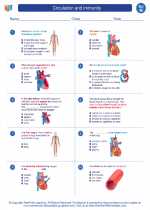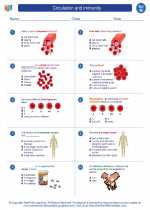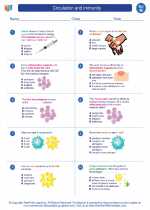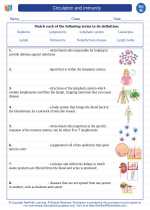Cellular Function
Cellular function refers to the processes and activities that take place within a cell to maintain homeostasis and support the life of the organism. These functions include metabolism, growth, differentiation, communication, and reproduction.
Study Guide
- Cellular Metabolism: This includes the chemical reactions that occur within the cell to produce energy, synthesize biomolecules, and eliminate waste products. It involves processes such as glycolysis, the citric acid cycle, and oxidative phosphorylation.
- Cell Growth and Division: Cells undergo growth through the synthesis of new proteins, lipids, and other molecules. They also divide through processes such as mitosis and meiosis to produce new cells for growth, repair, and reproduction.
- Cellular Communication: Cells communicate with each other through chemical signals, such as hormones and neurotransmitters, to coordinate activities and respond to changes in the internal and external environment.
- Cellular Differentiation: This involves the process by which a less specialized cell becomes more specialized through the expression of specific genes and the production of specific proteins, leading to the formation of different cell types with specific functions.
- Cellular Reproduction: Cells reproduce through processes such as mitosis, which produces two identical daughter cells, and meiosis, which produces gametes for sexual reproduction.
Understanding cellular function is crucial for comprehending the mechanisms that underlie health and disease, as well as for advancements in fields such as medicine, biotechnology, and genetics.
.◂Science Worksheets and Study Guides Eighth Grade. Circulation and immunity
Study Guide Circulation and immunity
Circulation and immunity  Worksheet/Answer key
Worksheet/Answer key Circulation and immunity
Circulation and immunity  Worksheet/Answer key
Worksheet/Answer key Circulation and immunity
Circulation and immunity  Worksheet/Answer key
Worksheet/Answer key Circulation and immunity
Circulation and immunity  Vocabulary/Answer key
Vocabulary/Answer key Circulation and immunity
Circulation and immunity  Vocabulary/Answer key
Vocabulary/Answer key Circulation and immunity
Circulation and immunity  Vocabulary/Answer key
Vocabulary/Answer key Circulation and immunity
Circulation and immunity  Vocabulary/Answer key
Vocabulary/Answer key Circulation and immunity
Circulation and immunity  Vocabulary/Answer key
Vocabulary/Answer key Circulation and immunity
Circulation and immunity  Vocabulary/Answer key
Vocabulary/Answer key Circulation and immunity
Circulation and immunity  Vocabulary/Answer key
Vocabulary/Answer key Circulation and immunity
Circulation and immunity 

 Worksheet/Answer key
Worksheet/Answer key
 Worksheet/Answer key
Worksheet/Answer key
 Worksheet/Answer key
Worksheet/Answer key
 Vocabulary/Answer key
Vocabulary/Answer key
 Vocabulary/Answer key
Vocabulary/Answer key
 Vocabulary/Answer key
Vocabulary/Answer key
 Vocabulary/Answer key
Vocabulary/Answer key
 Vocabulary/Answer key
Vocabulary/Answer key
 Vocabulary/Answer key
Vocabulary/Answer key
 Vocabulary/Answer key
Vocabulary/Answer key
